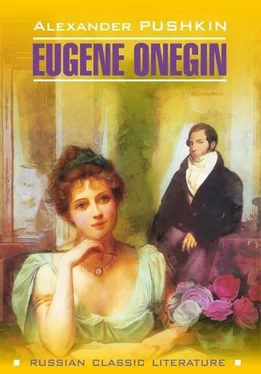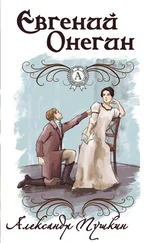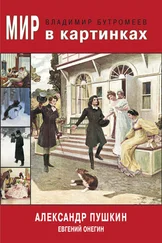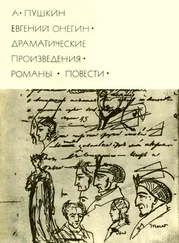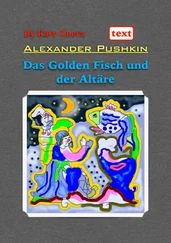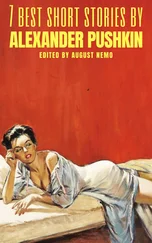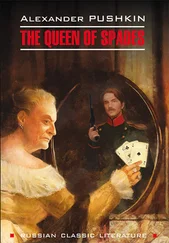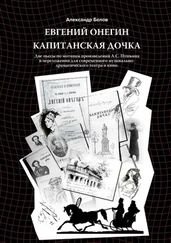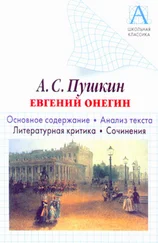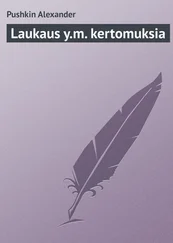Alexander Pushkin - Евгений Онегин / Eugene Onegin
Здесь есть возможность читать онлайн «Alexander Pushkin - Евгений Онегин / Eugene Onegin» — ознакомительный отрывок электронной книги совершенно бесплатно, а после прочтения отрывка купить полную версию. В некоторых случаях можно слушать аудио, скачать через торрент в формате fb2 и присутствует краткое содержание. Город: СПб, Год выпуска: 2017, ISBN: 2017, Жанр: Русская классическая проза, на английском языке. Описание произведения, (предисловие) а так же отзывы посетителей доступны на портале библиотеки ЛибКат.
- Название:Евгений Онегин / Eugene Onegin
- Автор:
- Жанр:
- Год:2017
- Город:СПб
- ISBN:978-5-9925-1230-4
- Рейтинг книги:3 / 5. Голосов: 1
-
Избранное:Добавить в избранное
- Отзывы:
-
Ваша оценка:
- 60
- 1
- 2
- 3
- 4
- 5
Евгений Онегин / Eugene Onegin: краткое содержание, описание и аннотация
Предлагаем к чтению аннотацию, описание, краткое содержание или предисловие (зависит от того, что написал сам автор книги «Евгений Онегин / Eugene Onegin»). Если вы не нашли необходимую информацию о книге — напишите в комментариях, мы постараемся отыскать её.
В формате PDF A4 сохранен издательский макет книги.
Евгений Онегин / Eugene Onegin — читать онлайн ознакомительный отрывок
Ниже представлен текст книги, разбитый по страницам. Система сохранения места последней прочитанной страницы, позволяет с удобством читать онлайн бесплатно книгу «Евгений Онегин / Eugene Onegin», без необходимости каждый раз заново искать на чём Вы остановились. Поставьте закладку, и сможете в любой момент перейти на страницу, на которой закончили чтение.
Интервал:
Закладка:
XIII
‘Tis dark. He seats him in a sleigh,
“Drive on!” the cheerful cry goes forth,
His furs are powdered on the way
By the fine silver of the north.
He bends his course to Talon’s [7] Talon, a famous St. Petersburg restaurateur.
, where
He knows Kaverine [8] Paul Petrovitch Kaverine, a friend for whom Pushkin in his youth appears to have entertained great respect and admiration. He was an officer in the Hussars of the Guard, and a noted “dandy” and man about town.
will repair.
He enters. High the cork arose
And Comet champagne foaming flows.
Before him red roast beef is seen
And truffles, dear to youthful eyes,
Flanked by immortal Strasbourg pies,
The choicest flowers of French cuisine,
And Limburg cheese alive and old
Is seen next pine-apples of gold.
XIV
Still thirst fresh draughts of wine compels
To cool the cutlets’ seething grease,
When the sonorous Breguet tells
Of the commencement of the piece.
A critic of the stage malicious,
A slave of actresses capricious,
Onegin was a citizen
Of the domains of the side-scene.
To the theatre he repairs
Where each young critic ready stands,
Capers applauds with clap of hands,
With hisses Cleopatra scares,
Moina recalls for this alone
That all may hear his voice’s tone.
XV
Thou fairy-land! Where formerly
Shone pungent Satire’s dauntless king,
Von Wisine, friend of liberty,
And Kniajnine, apt at copying.
The young Simeonova too there
With Ozeroff was wont to share
Applause, the people’s donative.
There our Katenine did revive
Corneille’s majestic genius,
Sarcastic Shakhovskoi brought out
His comedies, a noisy rout,
There Didelot became glorious,
There, there, beneath the side-scene’s shade
The drama of my youth was played [9] Denis Von Wisine (1741–1792), a favourite Russian dramatist. His first comedy The Brigadier , procured him the favour of the second Catherine. His best, however, is the Minor (Niedorosl). Prince Potemkin, after witnessing it, summoned the author, and greeted him with the exclamation, “Die now, Denis!” In fact, his subsequent performances were not of equal merit; Jacob Borissovitch Kniajnine (1742–1791), a clever adapter of French tragedy; Simeonova, a celebrated tragic actress, who retired from the stage in early life and married a Prince Gagarine; Ozeroff, one of the best-known Russian dramatists of the period; he possessed more originality than Kniajnine. Oedipus in Athens , Fingal , Demetrius Donskoi , and Polyxena , are the best known of his tragedies; Katenine translated Corneille’s tragedies into Russian; Didelot, sometime Director of the ballet at the Opera at St. Petersburg.
.
XVI
My goddesses, where are your shades?
Do ye not hear my mournful sighs?
Are ye replaced by other maids
Who cannot conjure former joys?
Shall I your chorus hear anew,
Russia’s Terpsichore review
Again in her ethereal dance?
Or will my melancholy glance
On the dull stage find all things changed,
The disenchanted glass direct
Where I can no more recollect? —
A careless looker-on estranged
In silence shall I sit and yawn
And dream of life’s delightful dawn?
XVII
The house is crammed. A thousand lamps
On pit, stalls, boxes, brightly blaze,
Impatiently the gallery stamps,
The curtain now they slowly raise.
Obedient to the magic strings,
Brilliant, ethereal, there springs
Forth from the crowd of nymphs surrounding
Istomina [10] Istomina – a celebrated Circassian dancer of the day, with whom the poet in his extreme youth imagined himself in love.
the nimbly-bounding;
With one foot resting on its tip
Slow circling round its fellow swings
And now she skips and now she springs
Like down from Aeolus’s lip,
Now her lithe form she arches o’er
And beats with rapid foot the floor.
XVIII
Shouts of applause! Onegin passes
Between the stalls, along the toes;
Seated, a curious look with glasses
On unknown female forms he throws.
Free scope he yields unto his glance,
Reviews both dress and countenance,
With all dissatisfaction shows.
To male acquaintances he bows,
And finally he deigns let fall
Upon the stage his weary glance.
He yawns, averts his countenance,
Exclaiming, “We must change ’em all!
I long by ballets have been bored,
Now Didelot scarce can be endured!”
XIX
Snakes, satyrs, loves with many a shout
Across the stage still madly sweep,
Whilst the tired serving-men without
Wrapped in their sheepskins soundly sleep.
Still the loud stamping doth not cease,
Still they blow noses, cough, and sneeze,
Still everywhere, without, within,
The lamps illuminating shine;
The steed benumbed still pawing stands
And of the irksome harness tires,
And still the coachmen round the fires [11] In Russia large fires are lighted in winter time in front of the theatres for the benefit of the menials, who, considering the state of the thermometer, cannot be said to have a jovial time of it. But in this, as in other cases, “habit” alleviates their lot, and they bear the cold with a wonderful equanimity.
Abuse their masters, rub their hands:
But Eugene long hath left the press
To array himself in evening dress.
XX
Faithfully shall I now depict,
Portray the solitary den
Wherein the child of fashion strict
Dressed him, undressed, and dressed again?
All that industrial London brings
For tallow, wood and other things
Across the Baltic’s salt sea waves,
All which caprice and affluence craves,
All which in Paris eager taste,
Choosing a profitable trade,
For our amusement ever made
And ease and fashionable waste, —
Adorned the apartment of Eugene,
Philosopher just turned eighteen.
XXI
China and bronze the tables weight,
Amber on pipes from Stamboul glows,
And, joy of souls effeminate,
Phials of crystal scents enclose.
Combs of all sizes, files of steel,
Scissors both straight and curved as well,
Of thirty different sorts, lo! brushes
Both for the nails and for the tushes.
Rousseau, I would remark in passing, [12] “Tout le monde sut qu’il (Grimm) mettait du blanc; et moi, qui n’en croyait rien, je commencai de le croire, non seulement par l’embellissement de son teint, et pour avoir trouvé des tasses de blanc sur la toilette, mais sur ce qu’entrant un matin dans sa chambre, je le trouvais brossant ses ongles avec une petite vergette faite exprès, ouvrage qu’il continua fièrement devant moi. Je jugeai qu’un homme qui passe deux heures tous les matins à brosser ses ongles peut bien passer quelques instants à remplir de blanc les creux de sa peau”. (Confessions de J. J. Rousseau)
Could not conceive how serious Grimm
Dared calmly cleanse his nails ’fore him,
Eloquent raver all-surpassing, —
The friend of liberty and laws
In this case quite mistaken was.
XXII
The most industrious man alive
May yet be studious of his nails;
What boots it with the age to strive?
Custom the despot soon prevails.
A new Kaverine Eugene mine,
Dreading the world’s remarks malign,
Was that which we are wont to call
A fop, in dress pedantical.
Three mortal hours per diem he
Would loiter by the looking-glass,
And from his dressing-room would pass
Like Venus when, capriciously,
The goddess would a masquerade
Attend in male attire arrayed.
Интервал:
Закладка:
Похожие книги на «Евгений Онегин / Eugene Onegin»
Представляем Вашему вниманию похожие книги на «Евгений Онегин / Eugene Onegin» списком для выбора. Мы отобрали схожую по названию и смыслу литературу в надежде предоставить читателям больше вариантов отыскать новые, интересные, ещё непрочитанные произведения.
Обсуждение, отзывы о книге «Евгений Онегин / Eugene Onegin» и просто собственные мнения читателей. Оставьте ваши комментарии, напишите, что Вы думаете о произведении, его смысле или главных героях. Укажите что конкретно понравилось, а что нет, и почему Вы так считаете.
